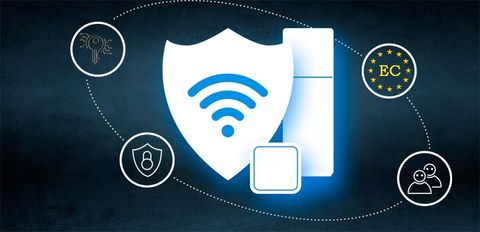The sphere of consumer protection in the EU is quite extensive and includes many issues of private and public, substantive, and procedural law.
Before registering a company in the EU and selling goods to Europe, you should carefully read the provisions of EU consumer protection legislation. A relationship with a consumer (B2C) includes at least one non-professional buyer of goods or services and one professional participant in the market for goods and services.
The purpose of consumer protection is to balance the interests of the parties, taking into account the presumption that a consumer involved in a B2C relationship with insufficient information, difficulties in accessing justice, and other factors is in a weaker position than the other party.
According to European Union rules, any changes in the field of consumer protection must provide a high level of protection. This norm provides a basis for harmonizing the laws of the member states in the field of consumer protection on the basis of establishing uniform minimum standards for protecting consumer interests.
First generation EU legal instruments focus primarily on contract law issues. These include the following Directives with regard to:
- Doorstep Selling;
- Package Travel;
- Timeshare;
- Distance Selling;
- Consumer Sales Directive;
- Unfair Contract Terms;
- Injunctions;
- Price Indication.
Some of them were incorporated into the CDR —The Consumer Rights Directive. The above-mentioned acts of European law constitute the consumer acquis. The key idea of the Directives is harmonization in the field of consumer protection to ensure the normal functioning of the single market.
The CDR contains the principle of targeted full harmonization, which means that the EU member states have freedom of action only on matters specified by the Directive.
To date, the Common European Sales Law has been developed at the EU level. It is assumed that the parties to B2C contracts will be able to select CESL as the applicable law in the sale and purchase transaction. After discussing this project in the EU Parliament, the scope of CESL was limited to distance selling, including e-commerce. Taking into account the growing share of e-commerce in the EU market, the Regulation on Online Dispute Resolution with Consumers and the EU ADR Directive have been adopted.
Despite the harmonization of substantive law, cross-border relations involving consumers in the EU are complicated by issues of procedural law. In particular, many European consumers face the challenges of filing complaints and claims, filing claims, and, moreover, difficulties in interacting with the local public authority to protect and represent consumer interests.
Justice 2: 0
Another tool being developed at the EU level to strengthen consumer confidence in cross-border B2C transactions is the concept of “justice 2.0”, which focuses on the problems of resolving cross-border disputes in B2C transactions. The concept includes two directions: the development of the institution of mediation in disputes with the participation of consumers and a change in the approach to the legislative regulation of cross-border B2C transactions.
In the first direction in the EU, ECC-Net was established. It is a public body of the EU, with branches in each of the EU member states. Its tasks are to provide consumers with the necessary information, represent consumer interests in resolving disputes over cross-border transactions, and implement legislative
Consumer protection is an area of regulation that affects the daily life of every EU citizen. Consumer protection legislation in the EU is under development, and at the moment the legislator is looking for the most optimal way of legal regulation of cross-border relations with the participation of consumers. The most important problem today is maintaining the balance of interests of business and customers, ensuring the normal functioning of the market, and providing consumers with guarantees to protect their interests. Today, at the EU level, the principle of partial harmonization is observed. One of the tools used at the pan-European level is the introduction of the institution of representation and protection of consumer interests in cross-border relations represented by ECC-Net.
If you are planning to start a business in the EU, in particular, sell goods in the European Union or provide services, you need to have an idea of the consumer protection standards set at the European level.












